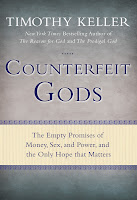“I’m going to do BIG things for God.”
How many of us can relate to those two statements? Even if you have never uttered those phrases, would you agree that the thought of it at least has entered your mind? Full disclosure: that mindset has been a part of my DNA for years now, and I am just now beginning to realize and admit it. It’s amazing how almost every person is determined to make a powerful impression on society or within their sphere of influence – and that’s not a bad thing! Nevertheless, what I’ve been wrestling with is how much that passion to be relevant has dictated my decisions and even affected the way that I view other people.
In the book, Go Small, Craig Gross points out that so many of us want to be revolutionaries and change the world; however, we’re so consumed with our desire to do big things that we often overlook the ordinary, bland things, and really miss the raw opportunities that are right in front of our face. If you look at Jesus’ life, He consistently flowed with the seemingly ordinary events of life – and oftentimes that’s where He would do His greatest works.
The challenge with this approach is that often I don’t get noticed when I’m doing the “small things.” I want to be involved in something that’s going to look good on my Facebook post; something that will win hundreds of people to Christ; something that will get me noticed by the masses. But it’s because of that mindset that I don’t notice, or have time for, the child playing around my house; the dirty dishes that are piling up in the sink; the friend at church that just needs someone to listen to them.
How about you? Can you be motivated to blossom right where God has planted you? Not worrying about if you get noticed or not? Live your life to the fullest in the same way Jesus did, in that He “made Himself nothing by taking the very nature of a servant.” God isn’t focused on counting how many Facebook likes you get or worried about how slowly your small group is growing. Start noticing the “small things” that are sitting directly in front of you and stay faithful to that – you may be amazed at the ways God shows up and the contentment that follows!










